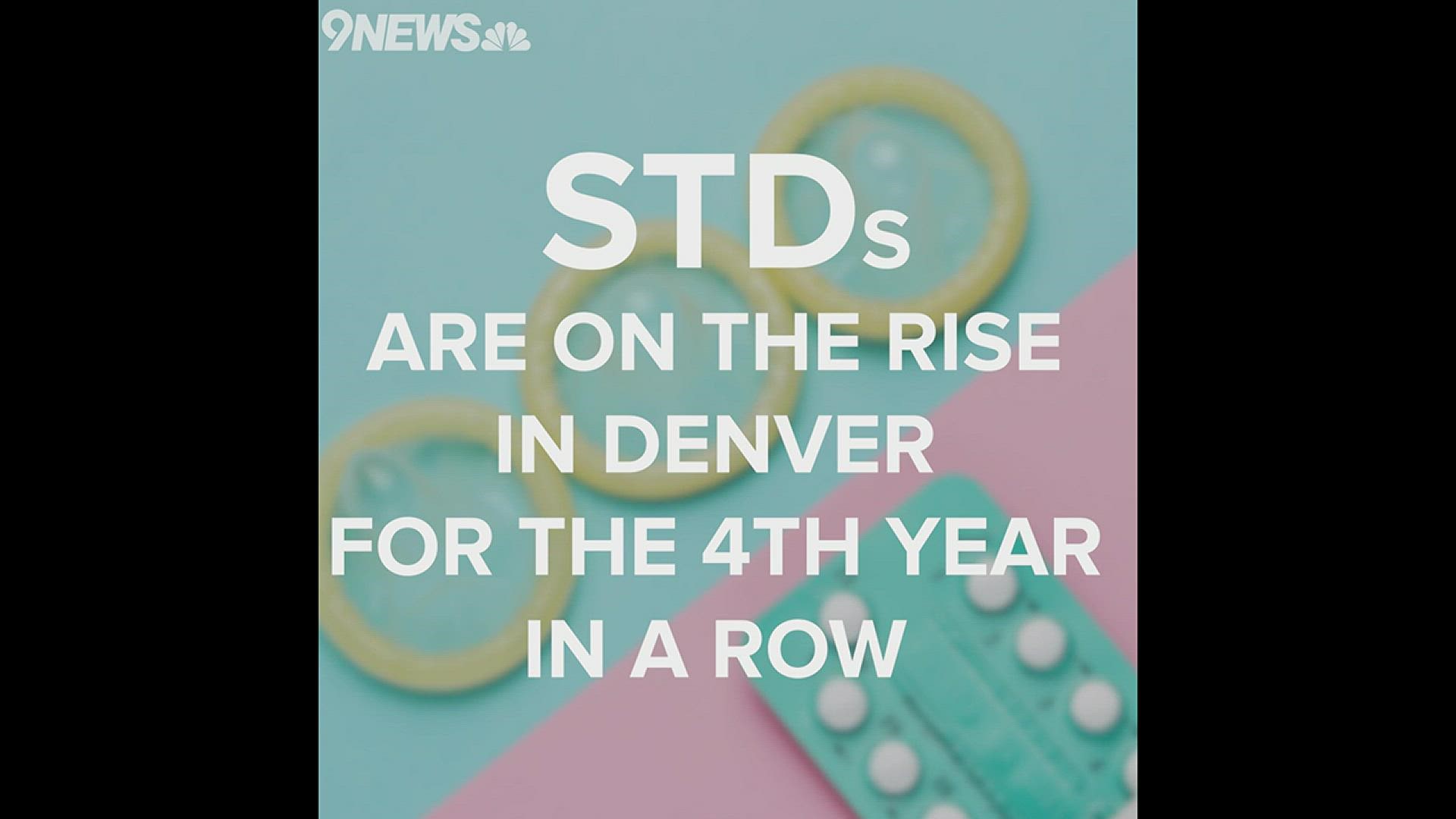DENVER — For the fourth year in a row, the number of cases of gonorrhea, syphilis and chlamydia has gone up in Denver.
In 2018, an estimated 2,700 people were diagnosed with gonorrhea, according to Denver Public Health.
It doesn't sound like a big number, but compared to 2014 it's a jump of 150%.
Cases of syphilis went up 75% in that same time frame, Denver Public Health said.
And cases of chlamydia, considered the most common STD, went up 24% to more than 7,300 cases in 2018.
Dr. Karen Wendel with Denver Public Health talked about the numbers, why we're seeing the rise and what can be done about.
9NEWS: Why would this happen?
Wendel: We’re seeing these types of rate increases nationally. Some areas are more heavily hit than others and explanations of these increases are not entirely clear, but some of the ideas of what’s driving this include decreased condom use, a decrease in screening because of changes in guidelines for things like pap smears and because of changes in recommendations about the need for prevention services.
I think some of the differences come with the curability of some of these STDs and so people know when you acquire HIV, you’re looking at a lifetime of therapy. Thankfully, these days our therapies are quite good and people can live a full life on these therapies. – 03.50.17 - However, they know things like gonorrhea, chlamydia and syphilis can be treated and sometimes as easily as one dose of medication. So I think folks become a little less concerned about it, thinks it doesn’t have as big of implications for them. But really what they need to know is all of them can be present without symptoms and can be doing damage to people who have them.
How easy is it to get screened?
Persons may believe that they need a full doctor’s physical or they may require extensive treatment, but really for gonorrhea and chlamydia, it can be as easy as giving a urine sample.
With how Denver's changing, has there been a change in access to treatments?
We suspect there is and we’re really trying to encourage more liberal testing and testing in ways that don’t require that doctor’s appointment because it can be as simple as providing a urine sample.
We do think there are some access issues, but the expansion of Medicaid has provided many patients who would not have options for some good options for paying for that type of care. But there are locations across the metro that are expanding their capacity in light of this epidemic to really be able to reach those that need.
Is this an alarming trend?
These trends in STDs are very alarming because we have not yet begun to see the implications of this for chlamydia and gonorrhea in the way of long term outcomes for our patients. Meaning ectopic pregnancies or infertility for young women. I think we are already beginning to see in Colorado, increasing cases of congenital syphilis. Meaning syphilis that is asymptomatic in the woman who’s carrying it, but has been transmitted to the baby and can result in stillbirth or result in significant malformations in their children.
Is there a section of the population that is more affected?
We do see that for some of our STDs, there have been higher increases in the rates in persons of color. And we’re not sure if that’s due to limitations in access to care, limitations to screening or if we need to do a better job educating those groups about the risks and ensuring that they know how to protect themselves better.
Low- and no-cost, confidential testing and treatment are available at Denver Public Health’s STD Clinic.
Learn more here: https://on9news.tv/2vwwhVK.
SUGGESTED VIDEOS | Local stories from 9NEWS


